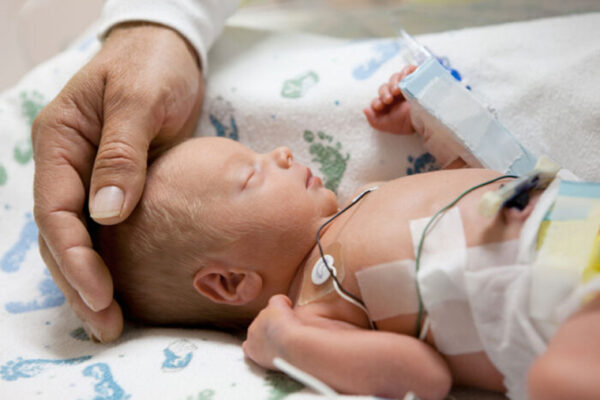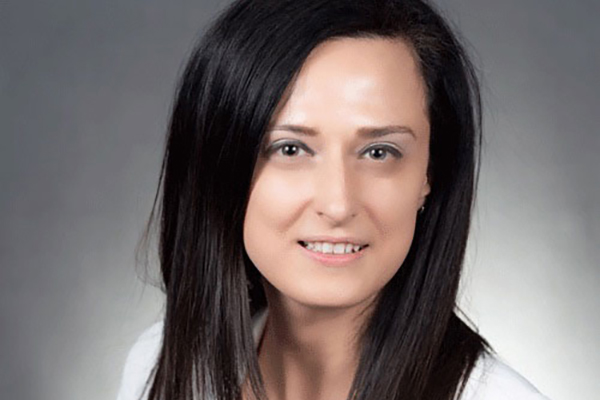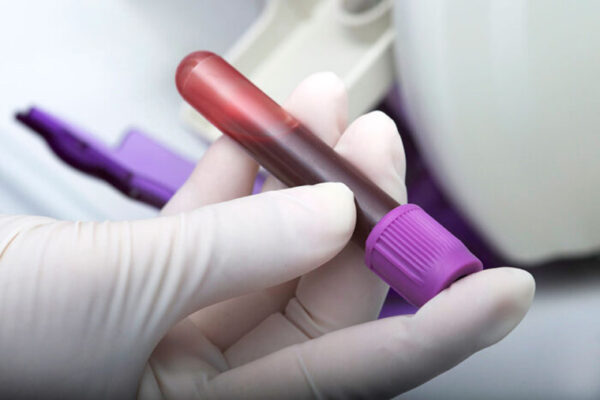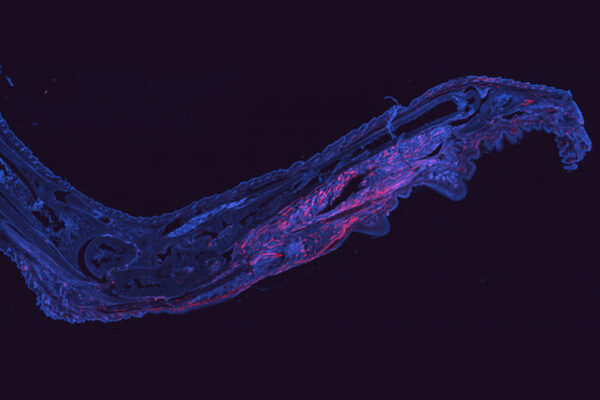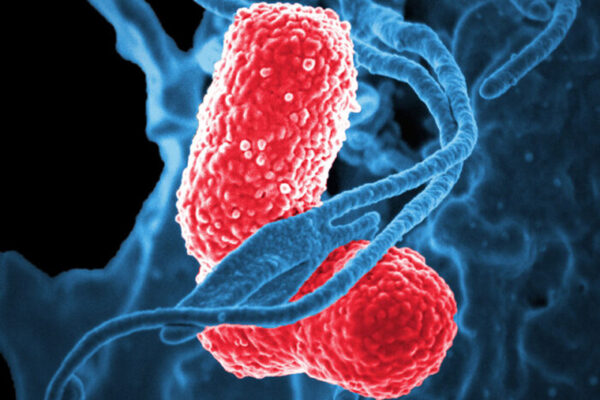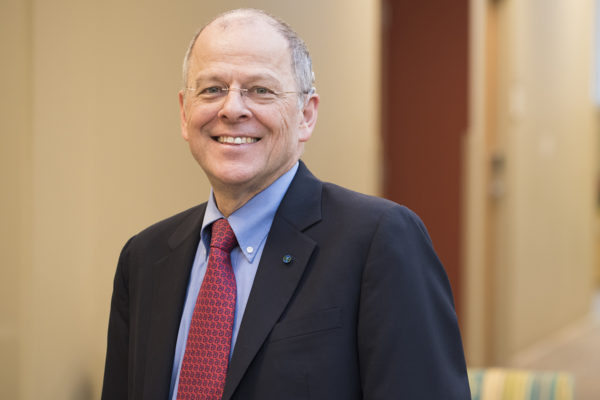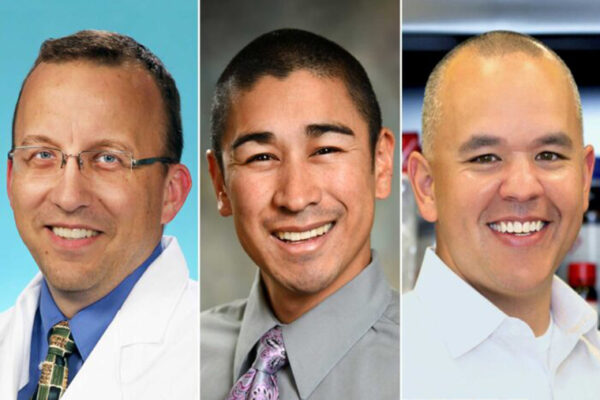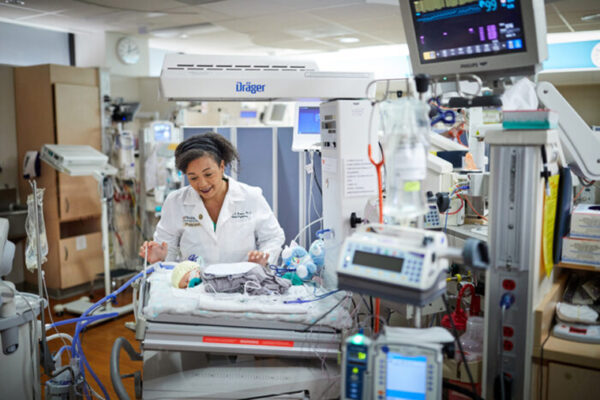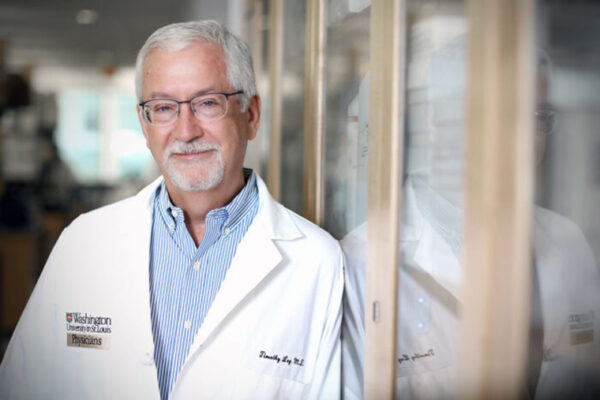Use of antibiotics in preemies has lasting, potentially harmful effects
Nearly all babies born prematurely receive antibiotics. A new study from the School of Medicine suggests that such early antibiotic treatment could have long-lasting and potentially harmful effects on the gut microbiome.
Mattar named a chair of group aimed at combating antimicrobial resistance
Caline Mattar, MD, assistant professor of medicine in the Division of Infectious Diseases at Washington University School of Medicine in St. Louis, has been appointed a chair of the Expert Advisory Group for the Global Antimicrobial Resistance Research and Development Hub.
Zika diagnostic test granted market authorization by FDA
A test for signs of Zika infection has been granted market authorization by the Food and Drug Administration. The test is based in part on an antibody developed by researchers at the School of Medicine.
Rood gives keynote at ostomy conference
Richard P. Rood, MD, professor of medicine in the Division of Gastroenterology at the School of Medicine, gave the opening keynote address at the United Ostomy Association of America’s national conference Aug. 7 in Philadelphia.
Arthritis-causing virus hides in body for months after infection
Researchers at the School of Medicine have developed a way to fluorescently tag cells infected with chikungunya virus. The technique opens up new avenues to study how the virus persists in the body and potentially could lead to a treatment.
Vaccine against deadly superbug Klebsiella effective in mice
Researchers at the School of Medicine in St. Louis and the biotech startup VaxNewMo have developed a vaccine that is effective, in mice, against hypervirulent strains of Klebsiella that can cause life-threatening infections in healthy adults.
Colditz appointed to NIH council
Graham A. Colditz, MD, DrPH, the Niess-Gain professor of surgery and director of the Division of Public Health Sciences at Washington University School of Medicine in St. Louis, has been named to the National Institutes of Health (NIH) Council of Councils.
Three physician-scientists receive Doris Duke Charitable Foundation awards
Three physician-scientists from Washington University School of Medicine in St. Louis have received a 2019 Clinical Scientist Development Award from the Doris Duke Charitable Foundation. Philip Budge, MD, PhD, Brian DeBosch, MD, PhD, and Andrew Kau, MD, PhD, are among 16 U.S. physician-scientists receiving the awards, which provide $495,000 over three years to each investigator.
Stable home lives improve prospects for preemies
A new School of Medicine study has found that as premature babies grow, their mental health may be related less to medical challenges they face after birth than to the environment the babies enter once they leave the newborn intensive care unit.
$15 million supports quest for personalized leukemia therapies
Investigators at Siteman Cancer Center at Barnes-Jewish Hospital and Washington University School of Medicine in St. Louis have been awarded a $15 million grant to better understand the genetic changes that drive acute myeloid leukemia (AML), a deadly blood cancer, and predict patients’ responses to therapy. The findings also may enable investigators to develop more effective therapies tailored to patients, based on the genetic characteristics of their cancer cells.
View More Stories
